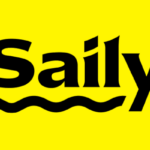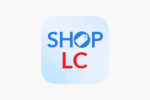Introduction to Coursera and its mission
Education is evolving, and Coursera is at the forefront of this revolution. With a mission to provide universal access to world-class learning, Coursera has transformed the way we think about education. Gone are the days when knowledge was confined to traditional classrooms. Today, anyone with an internet connection can unlock opportunities that were once out of reach.
Imagine being able to learn from top universities and institutions without ever stepping foot on campus. That’s the power of Coursera courses—accessible, flexible, and designed for today’s learners. Whether you’re looking to gain new skills or advance your career, online education offers a pathway unlike any other.
As we delve deeper into how Coursera is reshaping education for millions around the globe, you’ll discover why it stands out among various online course providers and what makes its offerings so unique. Let’s explore this exciting journey into the future of learning together!
The benefits of online education
Online education offers unparalleled flexibility. Students can learn at their own pace, fitting coursework around busy schedules. This accessibility empowers individuals from various backgrounds to pursue knowledge without the constraints of traditional classrooms.
Cost-effectiveness is another significant advantage. Online courses often have lower tuition fees compared to brick-and-mortar institutions. Additionally, students save on commuting and housing costs, making education more attainable for many.
The diverse range of subjects available online is astonishing. From programming to photography, learners can explore interests that might not be offered locally. This variety allows for a customized educational experience tailored to personal needs or career goals.
Networking opportunities abound as well. Online platforms connect students with peers and professionals globally, fostering collaboration and exchange of ideas across cultures and industries. These connections can lead to job opportunities or partnerships in the future.
Technology-enhanced learning tools make studying engaging while promoting interactive experiences that traditional methods may lack.
How Coursera is transforming the traditional education system
Coursera is reshaping the landscape of education by breaking down barriers that once limited access to quality learning. Traditional classrooms often come with hefty costs and geographical restrictions. With Coursera, anyone can learn from top universities worldwide, simply by logging in.
The platform offers flexible scheduling. This means learners can engage with courses at their own pace—an invaluable feature for working professionals or those juggling family commitments.
Additionally, Coursera integrates cutting-edge technology into its offerings. Interactive quizzes and peer-reviewed assignments enhance the learning experience beyond what many traditional classrooms provide.
Moreover, industry partnerships ensure course content remains relevant and up-to-date. Students gain practical skills that employers demand today.
This innovative approach not only democratizes knowledge but also encourages lifelong learning—a concept often overlooked in conventional educational systems.
A wide range of courses offered on Coursera
Coursera offers an impressive variety of courses that cater to diverse interests and career paths. From computer science to art history, the choices are abundant. Whether you’re a budding data scientist or a creative writer, there’s something for everyone.
One standout feature is the collaboration with top universities and organizations. This partnership enriches course content with expert insights and real-world applications. Imagine learning Python from Stanford professors or exploring business strategies crafted by industry leaders.
Additionally, Coursera frequently updates its catalog to reflect emerging trends in technology and education. You can find courses on artificial intelligence, digital marketing, or even mindfulness practices.
This extensive selection empowers learners of all backgrounds to pursue their passions at their own pace. With so many options available, mastery in various subjects is just a few clicks away on Coursera’s platform.
Success stories from students who have used Coursera
Many students have found life-changing experiences through Coursera. Take Sarah, for instance. She was a stay-at-home mom looking to re-enter the workforce. After completing a data science course, she landed a job at a tech firm within months.
Then there’s Mark, who struggled with traditional university classes due to his learning style. He discovered Coursera courses that matched his pace and preferences. With newfound skills in digital marketing, he now runs his own successful agency.
These stories highlight how online education transcends geographical barriers and personal circumstances. Students from diverse backgrounds share their journeys on platforms like LinkedIn, showcasing their achievements after taking Coursera courses.
With flexible schedules and industry-relevant content, these learners not only enhance their resumes but also boost their confidence levels—something they never thought possible before enrolling in an online course.
Comparison with other online course providers
When comparing Coursera with other online course providers, several factors come into play. One significant advantage is the collaboration with prestigious universities and organizations. This partnership ensures that courses are not only credible but also aligned with industry standards.
Platforms like Udemy and Skillshare offer a variety of user-generated content, which can sometimes lead to inconsistent quality. In contrast, Coursera maintains a rigorous vetting process for its courses.
Additionally, Coursera’s specialization tracks provide learners with in-depth knowledge on specific subjects. Other platforms may focus more on broad overviews or skill-specific training without offering comprehensive pathways.
Accessibility is another key factor. While many online learning platforms require payment upfront, some of Coursera’s offerings allow users to audit courses for free. This flexibility appeals to those hesitant about financial commitments before fully diving into their educational pursuits.
Each provider has unique strengths and focuses; however, Coursera stands out through its commitment to academic rigor and real-world applicability.
Challenges and limitations of online education through Coursera
While Coursera offers a wealth of opportunities, it isn’t without its challenges. One major hurdle is the lack of direct interaction with instructors. Unlike traditional classrooms, students may feel isolated in an online environment.
Another limitation lies in self-motivation. The flexibility of Coursera courses can be a double-edged sword; some learners struggle to maintain discipline and often fall behind.
Technical issues also pose problems for users. Not everyone has access to high-speed internet or capable devices, which can hinder the learning experience significantly.
Additionally, not all employers recognize online credentials equally. Some still prefer degrees from traditional universities over certificates from platforms like Coursera, creating barriers for job seekers.
While course content is diverse and extensive, certain fields may have limited offerings compared to conventional educational institutions. This gap can restrict learners looking for specialized knowledge.
Future developments and potential impact on traditional universities
As online platforms like Coursera continue to evolve, traditional universities may need to rethink their roles. The rise of flexible learning options could reshape the educational landscape significantly.
With an increasing number of students favoring Coursera courses for their convenience, institutions must adapt to stay relevant. This shift might lead universities to incorporate more hybrid models or offer online degrees themselves.
The value placed on practical skills and real-world applications is growing. Colleges that focus solely on theoretical knowledge may find it difficult to attract new students in this changing environment.
Partnerships with platforms like Coursera could also become common as universities seek innovative ways to enhance course offerings. By collaborating, they can provide specialized programs without sacrificing quality.
These developments present both challenges and opportunities for higher education institutions. How they respond will determine their future standing in an increasingly digital world.
Why Coursera is the future
Coursera is more than just an online course provider; it represents a significant shift in how we think about education. With its mission to provide universal access to world-class learning, Coursera empowers individuals from various backgrounds and locations to enhance their skills and knowledge.
As the demand for flexibility grows, traditional educational institutions face pressure to adapt. Coursera’s broad range of courses meets this need perfectly, offering everything from computer science to art history. This adaptability makes it easier for learners at any stage of life or career path to find relevant content that matches their goals.
The success stories emerging from Coursera are proof of its impact. Many students have transitioned into new careers or advanced within their existing roles thanks to the skills gained through these courses. These personal achievements reflect broader societal changes as workplaces increasingly seek skilled professionals who can learn quickly and effectively.
While other platforms exist, few match the depth and quality that Coursera offers through partnerships with top universities and organizations worldwide. This collaboration ensures that learners receive exceptional education tailored for today’s market needs.
Despite challenges like self-discipline requirements and potential gaps in networking opportunities compared with traditional schooling, Coursera has made strides toward creating engaging experiences—such as peer interactions and hands-on projects—that bridge those gaps.
As technology continues evolving alongside educational practices, it’s clear that platforms like Coursera will shape how future generations approach learning. The convenience of accessing high-quality resources anywhere aligns perfectly with modern lifestyles focused on continuous growth—a necessity in our rapidly changing world.
With all these factors taken together, one thing remains evident: when looking towards the future of education, it’s hard not to see why so many believe that Coursera is leading the charge into a new era of learning possibilities.














